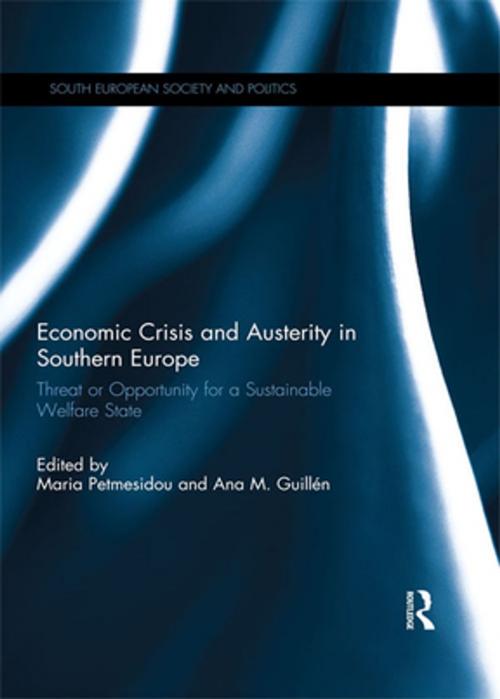Economic Crisis and Austerity in Southern Europe
Threat or Opportunity for a Sustainable Welfare State
Nonfiction, Social & Cultural Studies, Political Science| Author: | ISBN: | 9781317525813 | |
| Publisher: | Taylor and Francis | Publication: | October 2, 2017 |
| Imprint: | Routledge | Language: | English |
| Author: | |
| ISBN: | 9781317525813 |
| Publisher: | Taylor and Francis |
| Publication: | October 2, 2017 |
| Imprint: | Routledge |
| Language: | English |
Southern Europe has been hit hard by the global economic crisis and, as such, their welfare states have come under acute strain. Unmet need has sharply increased while significant welfare reforms and deep social spending cuts have been prominent in the crisis management solutions implemented by governments, labouring under EU constraints and the strict rescue-deal requirements for Greece and Portugal.
This volume provides a systematic comparative appraisal of welfare-state reform trajectories across Southern Europe prior to and during the crisis, and traces the impact of austerity policies and wider recession upon income inequality and poverty. It brings together a number of cross-country studies on major social policy areas, raising crucial questions. What policy choices are driving reforms as Southern European economies work their way out of fiscal difficulty? Can the crisis provoke the improvement of institutional capabilities and recalibration of social? Or, instead, does structural adjustment indicate a significant policy turn towards the erosion of social rights? The contributions critically approach these issues and bring evidence to bear upon whether Southern European welfare capitalisms are becoming more dissimilar.
This book was originally published as a special issue of South European Society & Politics.
Southern Europe has been hit hard by the global economic crisis and, as such, their welfare states have come under acute strain. Unmet need has sharply increased while significant welfare reforms and deep social spending cuts have been prominent in the crisis management solutions implemented by governments, labouring under EU constraints and the strict rescue-deal requirements for Greece and Portugal.
This volume provides a systematic comparative appraisal of welfare-state reform trajectories across Southern Europe prior to and during the crisis, and traces the impact of austerity policies and wider recession upon income inequality and poverty. It brings together a number of cross-country studies on major social policy areas, raising crucial questions. What policy choices are driving reforms as Southern European economies work their way out of fiscal difficulty? Can the crisis provoke the improvement of institutional capabilities and recalibration of social? Or, instead, does structural adjustment indicate a significant policy turn towards the erosion of social rights? The contributions critically approach these issues and bring evidence to bear upon whether Southern European welfare capitalisms are becoming more dissimilar.
This book was originally published as a special issue of South European Society & Politics.















